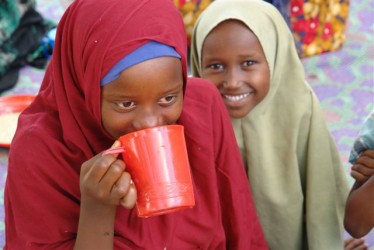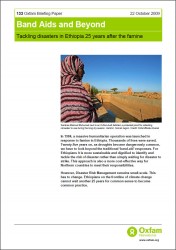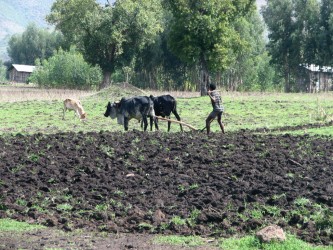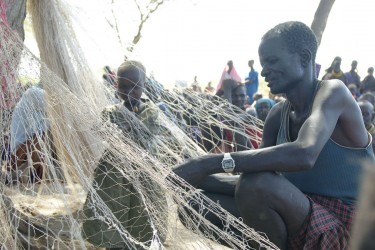Have you ever organised an event that flopped? In 1985 I was working for an international development NGO, and I organised a young people's fund raising event in a park in West London. It failed; few people came and even less money was raised: poor publicity, bad organisation, and, of course, the date was wrong. On the same day, 13th July, a few miles away in Wembley Stadium, Bob Geldof and Live Aid were successfully raising millions of pounds for Ethiopia.

With the 25th Anniversary of the release of the Band Aid record coming up, there is increasing public attention on the situation in the Horn of Africa; and rightly so, with over twenty million people across the region facing the need for humanitarian assistance. I think that the media coverage of Ethiopia has got it about right so far; they are not showing images of starving children, because there is no famine at the moment. Instead they are focusing on the impending risks of an emergency coming early next year, and emphasising the need for the Ethiopian Government and aid agencies to agree quickly on the scale of the problem and get the assistance in position early. In Kenya and Somalia though, the problem is immediate, and media images show the struggles of Somali refugees in Dabaab camp who have fled the fighting as well as the impact of the drought.

Ensuring that people survive a drought is right, but it is not enough. The recent Oxfam report Band Aids and Beyond points to the importance of Disaster Risk Management where action is taken to build people’s resilience to threats to their lives and livelihoods. Action for the long term is needed, as well as emergency help. As this report acknowledges, this is exactly what DFID is doing.

So far this year DFID has provided over £100 million to Ethiopia to deliver major improvements in the country’s health, education and agriculture services, as well as funding the Productive Safety Nets Programme which helps 7 million very poor people to lift themselves out of poverty by building a sustainable livelihood.

The same approach is taken in Kenya where DFID supports cash-for-work and food-for-assets programmes for people in the drought hit northern areas, as well as longer term development work.
British MPs have also been expressing concern. Gareth Thomas, the Minister of State for International Development had to answer questions from MPs in the House of Commons on 21st October about the situation in East Africa. You can see in this clip how much of the attention was concentrated on what the UK aid programme is doing to help in the long term.
Nearly twenty five years ago on that hot day in Holland Park my fundraising event may have flopped. But Ethiopia and other countries in the region have come a long way since then. Populations have doubled in that time, but proportionately the number at risk has been falling, as Ethiopia has put early warning systems in place, pre-positioned food stocks, and helped make peoples’ livelihoods more resistant to shocks.

1 comment
Comment by Ranjana Bhattacharya posted on
DFID is doing a good job by funding these African countries to help support the development process. DFID is now supporting Kenya's Ministry of Education's development programme on disability through its Education Assesment Resource Centres. Does DFID supports such programmes globally or in some countries based on certain parameters? If so what are these parameters ?